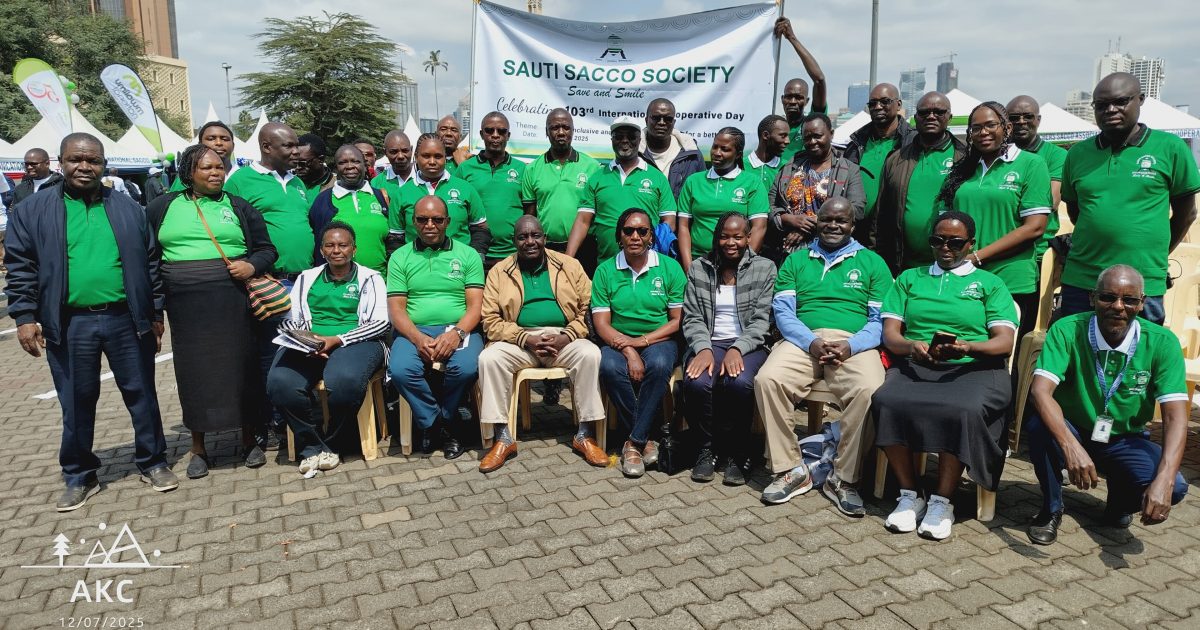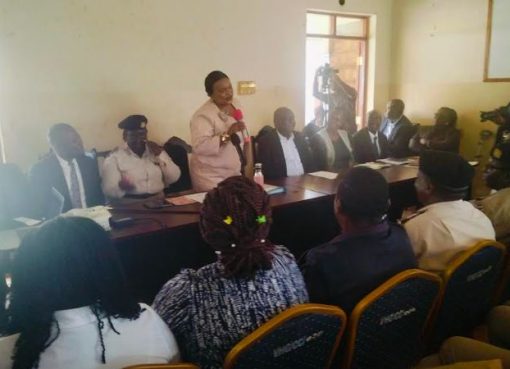The government is calling on cooperatives to embrace digital tools, enforce strong governance, and form strategic partnerships as it recognizes cooperatives not just as economic entities but as tools of equity, unity, and shared prosperity.
Speaking during the celebrations to mark Ushirika Day at the KICC, Nairobi, Cabinet Secretary for Cooperatives and MSMEs Development Wycliffe Oparanya urged cooperatives to embrace innovation, enforce strong governance, and form strategic partnerships in these fast-changing economic dynamics.
The CS said the Ministry is committed to full digitization for improved accountability and transparency within the cooperative movement to strengthen the sector and also enable shared digital platforms to enhance efficiency.
He said that the cooperatives should adopt digital transformation to ensure availability, efficiency, and safety of financial resources, enabling the institutions and members to access versatile systems in a convenient and cost-effective way.
“Cooperatives are pillars of Kenya’s economic transformation. Let us work together for an inclusive, sustainable, and prosperous future,” he said, adding that cooperatives globally showcase resilience through inclusive and democratic values.
In Kenya, the CS said that over 30,000 cooperatives are positively impacting agriculture, finance, housing, and health, advancing Vision 2030 and the UN Sustainable Development Goals (SDGs).
“Cooperatives lift millions out of poverty, from coffee farmers to SACCO members, demonstrating the power of collective action,” he said, adding that they are not just economic engines; they are agents of equity and shared prosperity.
The CS noted the Government Support under the BETA Bottom-Up Economic Transformation Agenda that cooperatives are central to affordable credit access for farmers. This is the time for development partners to use SACCOS as financial intermediaries to support MSMEs
“The ministry is confident that cooperatives now are more developed and are well-structured and can be used for borrowing purposes,” he said, adding that development partners most of their support have been going through the commercial banks, where requirement for borrowing is more stringent.
He noted that currently, the Kenyan cooperatives have a total saving of Sh1.2 trillion and that out of that amount, they have lent out Sh1 trillion, which shows their robustness as they continue to support value addition in agriculture and are very critical in agriculture, especially in coffee, dairy, and cotton, among others.
He said that the government is implementing initiatives like the ward-based cooperative model for the grassroots inclusion project and a Sh4.5 billion revolving fund project to make sure that the cooperative movement is able to operate in an enabling environment.
“Such initiatives and projects support SACCOs and value chains through the national agriculture value chain development projects to increase market participation and value addition,” he said.
He said the government is undertaking reforms of the Cooperatives Bill 2024 and SACCO Act Amendments to ensure resilience within the sector.
“We are hopeful that as soon as the Cooperatives Bill 2024 is enacted into law, it will promote transparency, ethical leadership, and governance competency and create proper structures within the cooperative movement,” he said.
He said that the government is also initiating amendments of the SACCO Act to make sure it complies with the current trends within the movement. One of the acts we have taken is to make sure that we have a deposit Guarantee Fund to secure members savings and create a central liquidity fund for SACCO stability.
The CS also urged cooperative leaders to champion youth and women in leadership since championing youth and women will ensure that there is diversity and that diversity drives sustainability.
Chairman of the Cooperative Alliance of Kenya, Macloue Malonza, said the cooperative movement in Kenya accounts for over 30 per cent of the national savings and it is ranked number one in Africa and number seven globally and in Kenya it is employing over 500,000 people directly and over a million people indirectly, with others drawing a livelihood indirectly.
Malonza said that the movement is facing stiff competition from other financial institutions and there is need for investment in robust and scalable ICT system to ensure compatibility with other network systems.
He said that to ensure availability, efficiency, and safety of financial resources, many cooperatives on their own find it difficult to procure and upgrade their systems due to financial constraints.
“We request the government to provide a policy and legal framework on Shared Services Platforms to promote such platforms like CoopTech SuperApp and enable the cooperative financial institutions to access versatile systems in a cost-effective way,” he said.
Meanwhile, the National Chairperson of the Sauti Saving and Credit Cooperative Society (Sauti Sacco), Elly Ndwiga, said that the cooperative is in the process of revamping its products and services and embracing innovation and digital tools and strong governance in order to offer maximized benefits to its members.
“We are happy to be part of the cooperative movement,” he said, adding that Sauti Sacco is growing and are expecting this year it will do much better and calling on those who are not members to join the SACCO.
By Anita Omwenga




